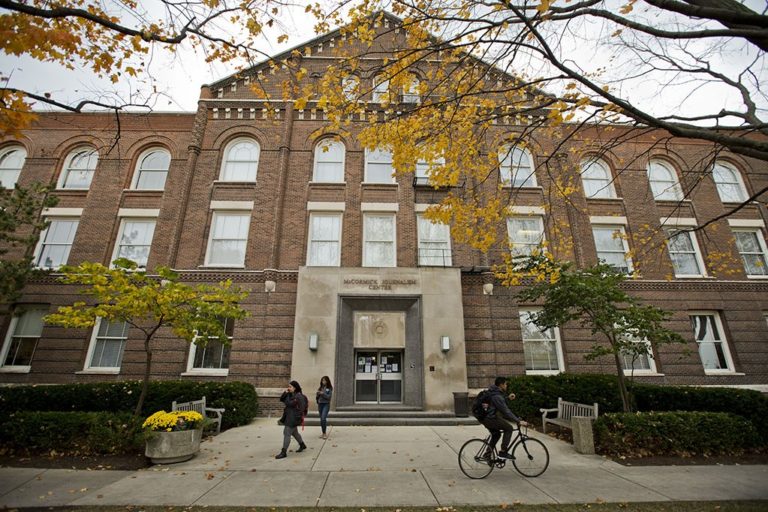| Rank | School | Location |
|---|---|---|
| 1 | Michigan State University | East Lansing, Michigan |
| 2 | Harvard University | Cambridge, Massachusetts |
| 3 | Carnegie Mellon University | Pittsburgh, Pennsylvania |
| 4 | Columbia University in the City of New York | New York, New York |
| 5 | Case Western Reserve University | Cleveland, Ohio |
| 6 | George Washington University | Washington, District of Columbia |
| 7 | Fielding Graduate University | Santa Barbara, California |
| 8 | Benedictine University | Lisle, Illinois |
| 9 | Graduate Center, CUNY | New York, New York |
| 10 | Northwestern University | Evanston, Illinois |
We have ranked the best PhDs in Industrial Organizational Psychology degrees.
A good doctoral program in industrial organization psychology (I-O psychology) should possess several key elements to ensure the best possible educational experience for its students.
IO Psychology programs study human behaviors in workplace settings. Professional psychology employs behavioral science to research organizations and thereby develop valuable resources and best practices.
This can include learning how to evaluate employees such as employee performance, worker productivity, and other human factors. This practice uses the scientist practitioner model, which is science put into practice.
There are doctor of philosophy online programs available for getting this advanced degree for part time and/or full time students. Admissions decisions are the same for online programs as traditional on-campus programs.
The Best PhDs in Industrial Organizational Psychology Programs
Michigan State University
East Lansing, Michigan

Michigan State University (MSU) offers students a highly regarded PhD in Industrial-Organizational (I-O) Psychology.
The program has a strong faculty of experienced and renowned researchers who are actively involved in cutting-edge psychological research, in areas such as job analysis, employee selection, training and development, and team dynamics.
This faculty includes several Fellows of the Society for Industrial and Organizational Psychology (SIOP), which is the premier professional organization in the field.
Designed to provide students with a solid foundation, the comprehensive curriculum includes coursework in advanced research methods, statistics, and psychometrics, as well as courses covering topics such as personnel selection, performance appraisal, leadership, and organizational culture.
Those enrolled can tailor their education with specializations in occupational health psychology, diversity and inclusion, and talent management.
One of the unique features of the MSU program is its teaching apprenticeship requirement, which includes working alongside experienced faculty members to gain practical teaching experience.
Students work closely with faculty members on projects and are supported in pursuing their own independent research. There are several research labs that focus on areas such as team effectiveness, occupational health psychology, and diversity and inclusion.
Harvard University
Cambridge, Massachusetts

The psychology PhD program at Harvard University focuses on training experts in the field of organizational behavior and psychology.
During the five-year program, students take courses, explore areas of inquiry, and work as teaching assistants in the psychology department.
Focus areas include leadership, organizational change and development, team dynamics, diversity and inclusion, human resources, and employee well-being.
Carnegie Mellon University
Pittsburgh, Pennsylvania

Carnegie Mellon's PhD program is designed to prepare graduates for careers as researchers, academics, and consultants in the field of organizational psychology.
The program emphasizes the integration of theory, research, and practice, and seeks to produce graduates who are well-equipped to tackle real-world problems in the workplace.
Over the course of the five-year program, students undertake coursework and serve as teaching assistants.
Within the program, there are a range of focus areas such as selection and assessment, training and development, leadership, team dynamics, and organizational culture. As well, there is an opportunity to work with other departments at Carnegie Mellon, such as the Tepper School of Business or the School of Computer Science.
Columbia University in the City of New York
New York, New York

Columbia University's PhD program focuses on training future experts in psychological science and the field of organizational behavior and psychology. The curriculum emphasizes the integration of theory and research with practical applications.
The five-year program includes coursework, research, teaching experiences and the opportunity to work with faculty on projects.
Key inquiry areas include leadership, teamwork and collaboration, diversity and inclusion, human factors, and organizational culture. Other department, such as the Columbia Business School or the Department of Sociology, are available for collaboration.
The program's emphasis on research and practical application prepares students to address real-world problems faced by organizations and to become leaders in the field.
Case Western Reserve University
Cleveland, Ohio

Case Western Reserve University's program provides them with the theoretical and methodological tools needed to address issues related to both individual differences and group behavior in the workplace.
The five-year program consists of coursework, research, and teaching experiences.
Key areas of exploration include leadership, motivation, and employee training and selection, and occupational health psychology. Collaboration with other departments, such as the Weatherhead School of Management or the Department of Psychology, is available.
George Washington University
Washington, District of Columbia

Designed to prepare students for careers in academia, consulting, and industry, George Washington University's program focuses on the theoretical and practical skills needed to conduct research and apply that new knowledge to real-world organizational problems.
The five-year program consists of inquiry, relevant coursework, and teaching experiences.
Inquiry areas include selection and assessment, leadership, team dynamics, and work-life balance. Collaboration with other departments, such as the School of Business or the Department of Psychology, is possible.
Fielding Graduate University
Santa Barbara, California

With a focus on the application of psychology to improve the well-being and effectiveness of individuals and organizations, Fielding Graduate University's program prepares students for careers in academia, business psychology or research.
The industrial organizational psychology program is offered in a distributed learning format, which allows students to complete coursework and research requirements online while also participating in occasional in-person residencies. This format accommodates the needs of working professionals who are seeking to advance their education while continuing to work in the field.
The program typically takes three to five years to complete and includes coursework and fieldwork experiences.
Graduate students can delve into topics such as leadership development, employee selection and assessment, and workplace diversity and inclusion. They also can collaborate with departments, such as the School of Leadership Studies or the Department of Clinical Psychology while getting their doctoral degree.
Benedictine University
Lisle, Illinois

Benedictine University's program focuses on the application of psychology to improve the well-being and effectiveness of individuals and organizations.
The program typically takes students four to five years to complete and includes coursework, research, and teaching experiences.
Inquiry focus areas include leadership and organizational development, and employee selection and assessment. Students also can collaborate with other departments, such as the Department of Business or the Department of Public Health.
Graduate Center, CUNY
New York, New York

The PhD in I-O Psychology at the Graduate Center, CUNY focuses on the application of psychology to improve the well-being and effectiveness of individuals and organizations.
The program typically takes five to six years to complete and includes coursework, scientific study, and teaching experiences.
Key areas of exploration include leadership development, employee selection and assessment, and workplace diversity and inclusion. Students also can collaborate with other departments in their education, such as the Sociology or Public Health.
Northwestern University
Evanston, Illinois

Northwestern University's organizational psychology Ph.D. focuses on organizational success through the application of psychological principles and research methods to enhance the performance and well-being of individuals and organizations.
The industrial organizational psychology program typically takes five years to complete and includes coursework and teaching experiences.
Key inquiry areas include leadership development, employee selection and assessment, work motivation and job satisfaction, and workplace diversity and inclusion.
Students receive full funding for tuition and a stipend for living expenses.
Northwestern University is a highly respected institution with a strong commitment to an interdisciplinary collaborative culture.
What makes a PhD I-O Psychology program one of the best?
A high-quality program should include:
- Experienced and knowledgeable faculty who are actively engaged in research.
- Opportunities to engage in research projects, attend conferences and network with professionals.
- A well-designed curriculum that incorporates foundational and advanced topics in the field.
- Access to state-of-the-art facilities and resources
- Regionally accredited institution
There are also programs available in industrial organizational psychology online, such as online doctorate options.
Online Phd and master's ranking:
What are Industrial and Organizational Psychology Degree Requirements?
Common requirements for a doctoral degree in Industrial and Organizational Psychology include:
- Completion of a bachelor's degree or equivalent
- Completion of core I-O psychology courses, including Personnel Selection, Performance Appraisal, Training and Development, and Job Analysis
- Completion of advanced courses in I-O psychology, such as Multilevel Modeling, Structural Equation Modeling, or Advanced Topics in I-O Psychology
- Completion of statistics and research methods courses
- Completion of a dissertation based on original inquiry
- Completion of teaching or research assistantships
In addition to these degree requirements, many I-O psychology programs require doctoral students to complete a certain number of supervised practicum or internship hours, typically in an organizational setting. Students may also be required to present their findings at conferences or publish their own dissertation research, in peer-reviewed journals.
Can You Earn Your Master of Philosophy Degree Along the Way?
It may be possible to earn a Master of Philosophy (MPhil) degree while pursuing a PhD.
An MPhil degree typically requires successful completion of coursework and a thesis or project. Some PhD programs offer an MPhil as an optional or intermediate degree, while others require it.
Program Goals
An Industrial and Organizational Psychology doctoral program prepares graduates for successful careers in academia, consulting firms, government, and industry.
Admission Requirements
Admission to industrial organizational psychology doctoral programs is highly competitive.
The application process typically requires a strong academic record, letters of recommendation, and GRE scores.
Prospective students should be able to demonstrate prior research experience in the field.
Are transfer credits accepted for doctoral programs?
Some doctoral programs may accept transfer credits from previous graduate-level coursework.
The amount of credits that can be transferred may be limited, need to be relevant to the program and meet the institution's requirements.
Are there online Industrial Organizational Psychology PhD programs?
While many universities offer online courses at the undergraduate and master's degree level, it is less common for PhD programs to be entirely online. Doctoral programs typically involve a significant amount of research and collaboration with faculty, which is best done in person.
Some institutions of higher education may offer select courses in an online or hybrid format. Some universities may offer online options for certain aspects of the graduate program, such as seminars or professional organizational development opportunities.
Is industrial organizational psychology worth it?
Industrial and Organizational psychology applies psychological principles and inquiry methods to improve the workplace performance and the well-being of employees, and to help solve workplace problems. It is a rapidly growing field that can lead to a variety of career paths and has a strong earning potential.
What career titles are held by Industrial Organizational Professionals?
Professionals in Industrial-Organizational Psychology hold dozens of job titles such as:
- HR Practice Leader
- Behavioral Analyst
- Behavioral Scientist
- Talent Management Specialist
- Learning & Performance Professional
- Career Planning Professional
Should I get a masters or PhD in industrial organizational psychology?
Deciding whether to pursue a Master's or PhD depends on career goals and aspirations.
To hold a leadership position in academia or industry, doctoral study may be necessary. However, a master's degree would be sufficient for roles in consulting or human resources.
Consider the time and resources required. Psychology PhD programs take longer to complete and often require a dissertation, which can take several years to complete.
For those interested in contributing to advancements in the field of organizational I-O Psychology, a psychology PhD may be the better choice. If you are more interested in applying I-O Psychology in real-world settings, a master's degree may be sufficient.
An Overview of Curriculum Goals for a PhD in I-O Psychology
Students should develop the ability to design and conduct studies, analyze data, and write up results in an academic format.
Students should apply principles to real-world situations and be knowledgeable about ethical issues.
Industrial Organizational Psychologists: Salary Information
According to the U.S. Bureau of Labor Statistics (BLS), the median annual wage for I-O psychologists as of May 2022 was $139,280.
Salaries can vary based on industry, with the highest median wages typically found in scientific research and development services, management, and government agencies.
I-O psychology is generally considered a well-paying field with opportunities for growth, career development and advancement. Some positions that graduates may work in include Organizational Development Specialist, HR Manager, College or University Professor, or Research Analyst.
A Personalized Guide to Completing Your Doctorate
Pursuing a doctoral program is a challenging journey, but also an incredibly rewarding one. Here's a personalized guide to help you complete your doctorate:
- Define research goals and objectives.
- Create a detailed plan for your research with timelines, milestones and expected outcomes.
- Choose a supervisor who is experienced in your field and whose research interests align with yours.
Professional Organization:
Ranking Methodology:
This ranking is based on the the academic achievement and influence of the faculty and alumni of these schools in the field of industrial organizational psychology, as determined by a proprietary metric of publications and citations in IO Psychology. For more information see our college ranking methods.
